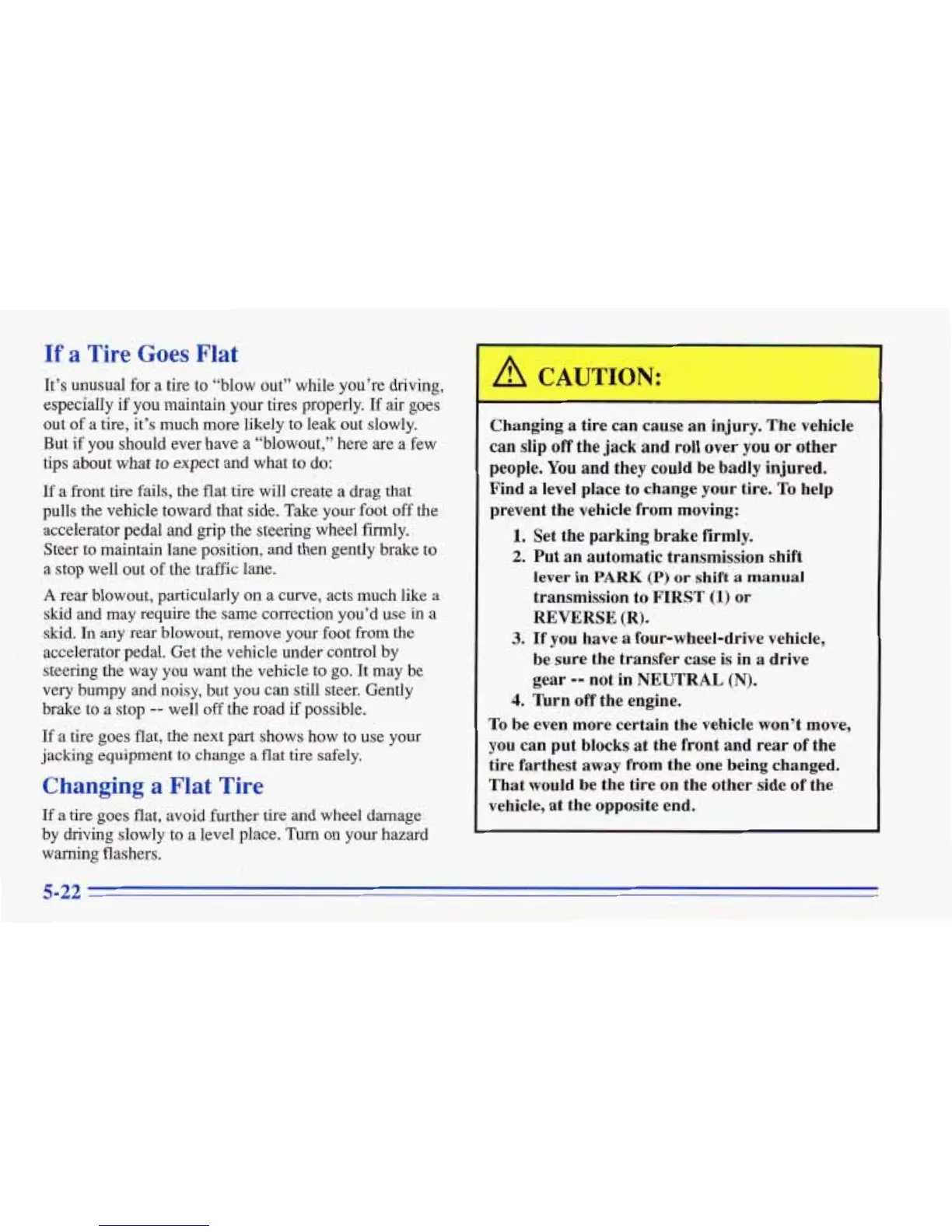If
a
Tire
Goes
Plat
It’s unusual
for
a tire to “blow out” while you’re driving,
especiaIIy
if
you maintain
your
tires properly.
If
air goes
out
of
a tire, it’s much more likely to leak
put
slowly.
But if you should ever have a “blowout,” here are a few
tips about
what
to
expect and what to do:
If
a
front
tire
fails, the flat tire will create
a
drag that
pulls the vehicle toward that side. Take your foot
off
the
accelerator pedal
and
grip the steering wheel firmly.
Steer to maintain lane position, and then gently brake to
a stop well out
of
the traffic lane.
A
rear blowout, particularly on a curve, acts much
like
a
skid and may require the same correction you’d use
in
a
skid.
In
any
rear
blowout, remove your
foot
from
the
accelerator pedal. Get the vehicle under control by
steering the way you want the vehicle to go.
It
may be
very
bumpy
and
noisy, but
you
can still steer. Gently
brake to a stop
--
well
off
the road if possible.
If
a tire goes flat,
the
next part
shows how
to use your
jacking
equipment
to change
a
flat
tire
safely.
Changing
a
Flat
Tire
If
a
tire
goes
flat,
avoid further tire and wheel damage
by driving slowly
to
a
level place.
Turn
on your hazard
warning flashers.
I
’
A
CAUTION:
Changing
a
tire can cause an injury. The vehicle
can slip
off
the jack and
roll
over
you
or
other
people.
You
and they could be badly injured.
Find
a
level place to change your tire.
To
help
prevent the vehicle
from
moving:
1.
Set
the parking brake firmly.
2.
Put
an automatic transmission shift
lever
in
PARK
(P)
or shift
a
manual
transmission
to
FIRST
(1)
or
REVERSE
(R).
3.
If
you have
a
four-wheel-drive vehicle,
be sure the transfer case is in
a
drive
gear
--
not in
NEUTRAL
(N).
4.
Turn
off
the engine.
To
be
even
more certain the vehicle won’t move,
you
can put
blocks
at
the front and rear
of
the
tire farthest away from the one being changed.
That would be the tire on the other side of the
vehicle,
at
the opposite end.
~~
5-22
